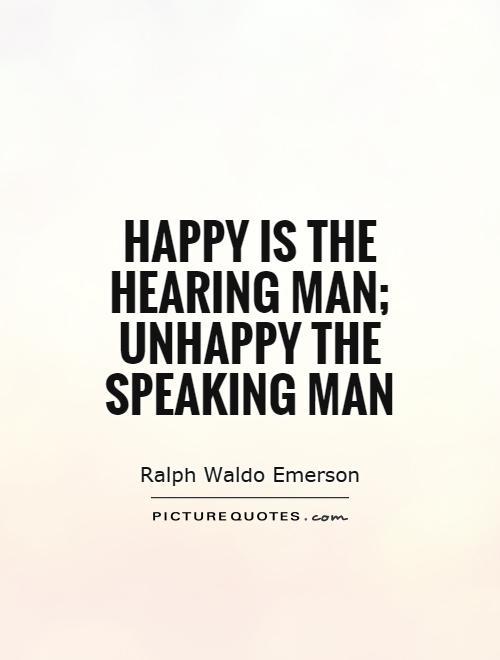Happy is the hearing man; unhappy the speaking man

Happy is the hearing man; unhappy the speaking man
Ralph Waldo Emerson, a renowned American essayist, poet, and philosopher, is known for his profound insights into human nature and the complexities of life. One of his famous quotes, “Happy is the hearing man; unhappy the speaking man,” encapsulates a powerful message about the importance of listening and the potential pitfalls of speaking.In Emerson’s view, the act of listening is a source of happiness and contentment. When we listen attentively to others, we open ourselves up to new ideas, perspectives, and experiences. By truly hearing what others have to say, we can broaden our understanding of the world and deepen our connections with those around us. Listening allows us to empathize with others, learn from their wisdom, and cultivate a sense of humility and openness.
On the other hand, Emerson suggests that speaking can lead to unhappiness. When we speak without truly listening, we run the risk of being misunderstood, misinterpreted, or ignored. Our words may fall on deaf ears or be met with resistance, leading to frustration, conflict, and isolation. In our eagerness to be heard, we may overlook the value of silence and the power of thoughtful reflection.
Emerson’s words remind us of the importance of balance in communication. While speaking is essential for self-expression and sharing our thoughts and feelings, listening is equally crucial for building meaningful relationships and fostering mutual understanding. By cultivating the art of listening, we can enrich our lives, deepen our connections with others, and cultivate a sense of inner peace and contentment.












 Friendship Quotes
Friendship Quotes Love Quotes
Love Quotes Life Quotes
Life Quotes Funny Quotes
Funny Quotes Motivational Quotes
Motivational Quotes Inspirational Quotes
Inspirational Quotes